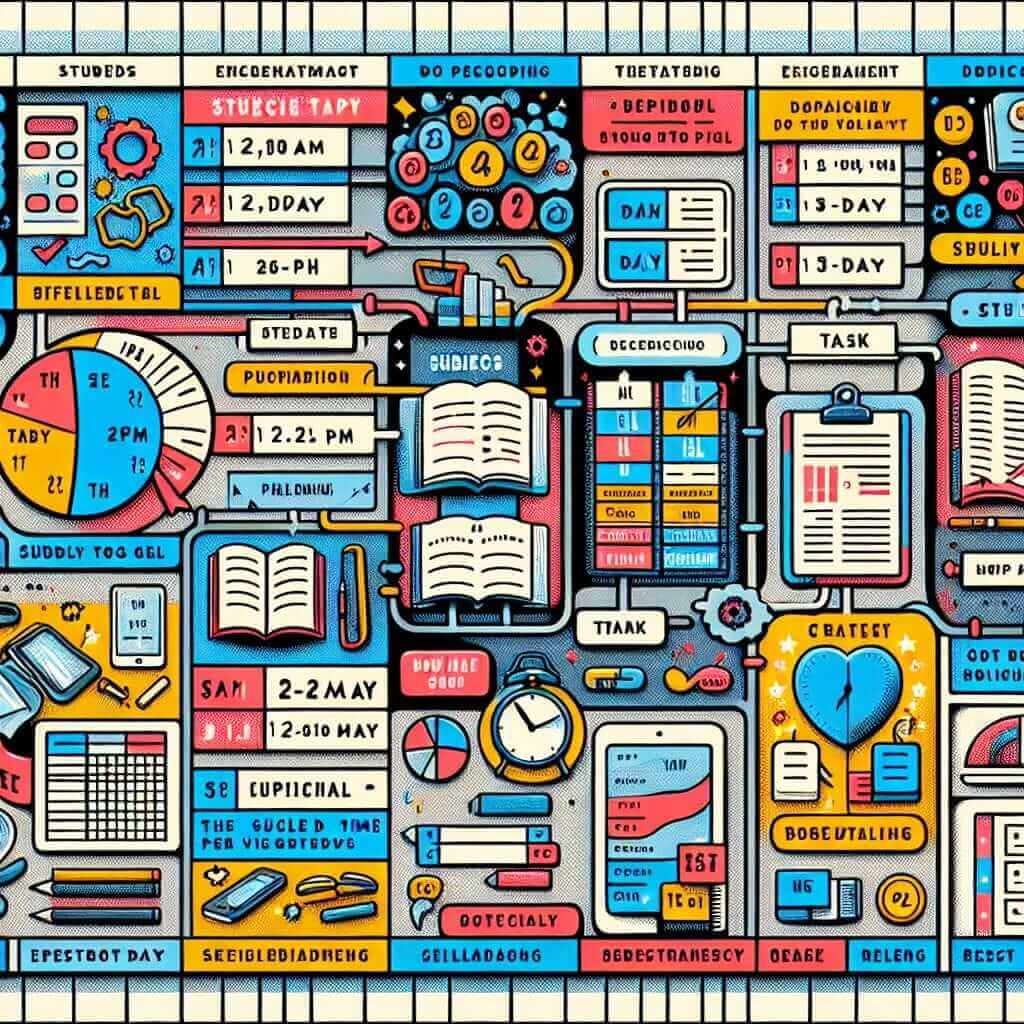Preparing for the IELTS exam in just 13 days might seem challenging, but with the right strategy and dedication, it is achievable. This article will guide you through an effective preparation plan, ensuring you tackle all sections of the exam confidently.
What is the IELTS Exam?
The International English Language Testing System (IELTS) is a standardized test to measure English language proficiency for non-native speakers. It includes four main sections: Listening, Reading, Writing, and Speaking.
Day-by-Day Preparation Plan
Day 1-2: Understanding the Test Format and Criteria
Familiarize Yourself with the Test Structure
- Listening: 4 sections, 40 questions, 30 minutes
- Reading: 3 sections, 40 questions, 60 minutes
- Writing: 2 tasks, 60 minutes
- Speaking: 3 parts, 11-14 minutes
Study the Band Descriptors
- Know the criteria for each band score.
- Understand what examiners look for, particularly in the Speaking and Writing sections.
Example:
For Writing Task 2 (an essay), the band descriptors emphasize:
- Task Response
- Coherence and Cohesion
- Lexical Resource
- Grammatical Range and Accuracy
Day 3-4: Listening Practice
Intensive Listening Practice
- Use official IELTS practice materials.
- Practice with different English accents.
Example Questions:
- Section 1: Social needs (e.g., booking a hotel room)
- Section 2: Local facilities (e.g., a guide talking about the zoo)
- Section 3: Educational or training context (e.g., a tutor and a student discussing an experiment)
- Section 4: Academic subjects (e.g., a lecture on wildlife)
Tips:
- Focus on identifying main ideas and specific information.
- Practice note-taking effectively.
Day 5-6: Reading Strategies
Practice Skimming and Scanning
- Practice reading for gist (overall meaning) and specific details.
Example Questions:
- True/False/Not Given
- Multiple Choice
- Matching Headings
Tips:
- Improve your speed by timing your reading practice.
- Always refer back to the text to ensure accuracy in your answers.
Day 7-8: Enhance Writing Skills
Task 1 (Academic and General Training)
- Academic: Describe visual information (graphs, charts, diagrams).
- General Training: Write a letter (e.g., complaint, request).
Task 2 (Essay Writing)
- Practice planning and structuring essays.
- Different types: argument, discussion, problem-solution.
Example Task:
“Some people believe that unpaid community service should be a compulsory part of high school programs. Do you agree or disagree?”
Tips:
- Begin with a clear thesis statement.
- Use cohesive devices to link paragraphs.
- Avoid common grammar mistakes.
Day 9-11: Speaking Preparation
Practice Speaking Part 1, 2, and 3
- Part 1: Personal questions (e.g., your hometown, hobbies).
- Part 2: Long turn (e.g., describe a recent holiday).
- Part 3: Discussion (related to the Part 2 topic).
Example Questions:
- Part 1: “Do you like your hometown? Why or why not?”
- Part 2: “Describe a book you recently read.”
- Part 3: “How does reading books benefit people?”
Tips:
- Improve fluency and coherence.
- Expand your vocabulary.
- Aim for naturalness in your speaking.
Day 12: Full Mock Test
Simulate Exam Conditions
- Take a full-length practice test to build exam stamina and time management.
- Review your answers thoroughly and identify areas needing improvement.
Day 13: Final Review and Relaxation
Revising Key Areas
- Review common mistakes and challenging areas.
- Go through key vocabulary and grammar points.
Tips:
- Stay positive and confident.
- Ensure you are physically and mentally relaxed for the test day.
Common Pitfalls and How to Avoid Them
Misunderstanding the Question
- Always read the question carefully and understand what is required.
Poor Time Management
- Practice under timed conditions to improve pacing.
Example:
In the Reading section, divide your time approximately as follows:
- Passage 1: 15 minutes
- Passage 2: 20 minutes
- Passage 3: 25 minutes

Practice Exercises
Listening
- Use audio recordings from IELTS practice materials.
- Practice summarizing spoken text.
Reading
- Read diverse materials (newspapers, journals) regularly.
- Practice sample reading comprehension questions.
Writing
- Write essays and reports regularly.
- Get feedback from peers or mentors.
Speaking
- Record yourself speaking on various topics.
- Practice with a partner or tutor.
Conclusion
Preparing for IELTS in 13 days requires focus, determination, and efficient use of resources. By understanding the test format, practicing diligently across all sections, and avoiding common pitfalls, you can enhance your chances of achieving a high band score. Remember to stay confident and positive as you approach the test day. Good luck!
Feel free to leave comments or share your experiences, and explore more content on our website to further enhance your IELTS preparation journey.